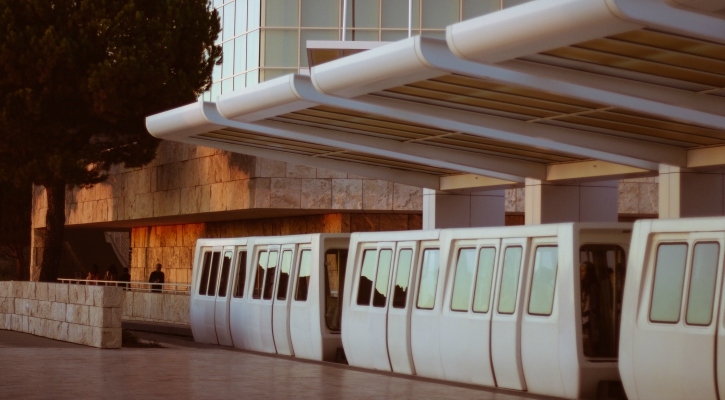Cost of living in Hong Kong: Your guide
If you fancy a life in Hong Kong, you're not alone. It's among the most densely populated places in the world, with an amazing seven million people in just...

Hong Kong is an exciting and spectacular destination for expats, but it doesn’t come cheap. In fact, it’s among the world’s most expensive cities. And moving countries can always become an expensive affair. So take a look at this list of ways to cut down on some of your initial costs in the Fragrant Harbour, avoiding some of the hidden expenses that you might come up against.

It’s highly likely you’re going to need outside help to get all your stuff to Hong Kong, which means you’ll need to ship some boxes over there, unless you’re travelling very light. But the more of the process you can do yourself, the better. If you pack things up yourself, you’ll have total control over what you do and don’t take - and save on costs while you’re doing it.
Worst case scenario: you get to your tiny new apartment in Hong Kong, and discover that the moving company has delivered four boxes of your old T-shirts and magazines you’ve already read. If you unpack them, you’ll have no room for a sofa. Don’t let it happen - pack those boxes yourself.

That relates to another important point. Hong Kong apartments are… not spacious. In fact, they're the smallest in the world. On average they’re approximately 470 square feet each - less than a quarter of the size of an apartment in the US. So on no account should you take more than you need to.
That doesn’t just mean big things. It might well be worth starting again with electric appliances. Depending on where you’re coming from, you may need an adaptor and/or a transformer, or your devices might simply not work - especially if you’re coming from the US. So check before you go, but you should seriously consider trading in your kettle before you leave. It’ll save on shipping costs, too.

Yes, you should stay fit when you’re in Hong Kong. But no, it isn’t cost or time effective to keep going to your current gym back home. That’s right - it’s time for one final spin and just a couple more miles on the rowing machine before you clean out your locker, bid your farewells and - don’t forget this one - cancel your direct debit.
The same goes for all your other subscriptions and bills. Magazine subscriptions, credit cards, utilities - you’re going to have to go through them all. Yes, all of them. Make a spreadsheet. You’ll have enough bills to cope with when you get to Hong Kong.

If there’s one thing Hong Kong knows, it’s banks, so it’s no surprise that setting up a bank account in Hong Kong is relatively stress-free. You do need a proof of address, however, so it might be difficult for you to sort this out before you move there or right at the start of your time in the country.
If you don’t yet have a permanent residence in Hong Kong, you can open up a virtual borderless multi-currency account with Wise in euro, pounds, US or Australian dollars. As well as keep your money in up to 28 different currencies, including the Hong Kong dollar. So should you want to transfer all your money across in one go you can keep it on your borderless account until you’ve sorted out a bank account for yourself in Hong Kong, this might be a good option for you.
Once you’re ready to transfer the money to your local Hong Kong account, you can do so with a small transparent and upfront fee and the real mid-market exchange rate - the one you’d find on Google. Which means you don’t have to pay a hefty international transaction fee every single time.
You can also get a debit card in early 2018, so you don’t have to wait until you have a local bank account to be able to access your Hong Kong dollars while already in the country.
All in all, it’s a cheaper option than using a bank and is ideal for newly arriving expats. Take a look now and see how much you could save on your transfers.

People do drive in Hong Kong, but congestion is always an issue, parking is next to impossible, and maintenance costs are through the roof. What’s more, public transport is great, with plentiful buses and taxis, plus trams, ferries and a subway and rail system that can let you bypass the roads altogether. All in all, the cost-effective solution is to leave your car behind.

Once you’ve waved goodbye to your car, you should waste no time and get yourself Hong Kong’s convenient wallet-sized replacement: the Octopus card. Launched in 1997, it was the world’s second public transport payment system that used smart cards (the first was the Upass in South Korea). London’s Oyster card system, and many others, live in the shadow of the Octopus.
Your Octopus can get you around the city by bus, tram, train or ferry, and even in some taxis. But you can also use it to buy groceries, fast food and cakes.
And it doesn’t just speed things up: on many services, transit fares are cheaper with an Octopus card than without. Don’t let those Octopus discounts slip away.

As already mentioned, the average Hong Kong apartment - houses aren’t really a thing there - is quite small. And that’s not just the legendary ‘coffin homes’, but standard family apartments too. If you’re completely new to Hong Kong, it might be best to spend a few weeks looking around, to get a feel for the standards expected of accommodation there, as well as the many different areas.
Despite the size issues, there are some wonderful places, as you’d expect from a vibrant metropolis like Hong Kong. The old adage is true here like anywhere else: you get what you pay for. So don’t expect a lower quality of life - just less storage space.
Don’t expect to master the Hong Kong property market overnight. Go through agencies that specialise in expats, and if your work is offering to lend a hand in finding somewhere, don’t think twice about accepting the help.

One perplexing quirk of renting property in Hong Kong is that you usually won’t be trusted to pay for your electricity and gas until you’ve put a deposit down with the company in question. For electricity this is often as much as two months’ worth of bills. The tenant often has to sort this out themselves, although sometimes the landlord will cover it.
You also need to make sure this is sorted before you get there: otherwise you won’t have power when you arrive.

You shouldn’t need to abandon your beloved furry companion at the airport so long as you closely observe the Hong Kong government’s conditions for importing animals. The conditions vary according to what country you’re coming from as well as what animal(s) you’re bringing, so take a close look.
That’s not the end of the story, though. Do factor your pet into your search for accommodation, including your choice of neighbourhood - Hong Kong is a city dominated by high-rise buildings that don’t exactly scream German Shepherd. If you can, also try and get your cat or dog - or whatever animal you’re bringing - used to spending time in a travel box, in preparation for the long trip. And don’t forget to consider pet insurance.
Don’t let the situation get out of hand - consider enlisting a specialist pet relocator to ease you through the process.
Good luck with your move to Hong Kong. It’s a wonderful and fascinating city to make your home. Just don’t let its priciness get in the way of your enjoyment. Look out for hidden costs - but most importantly, have fun.
*Please see terms of use and product availability for your region or visit Wise fees and pricing for the most up to date pricing and fee information.
This publication is provided for general information purposes and does not constitute legal, tax or other professional advice from Wise Payments Limited or its subsidiaries and its affiliates, and it is not intended as a substitute for obtaining advice from a financial advisor or any other professional.
We make no representations, warranties or guarantees, whether expressed or implied, that the content in the publication is accurate, complete or up to date.

If you fancy a life in Hong Kong, you're not alone. It's among the most densely populated places in the world, with an amazing seven million people in just...